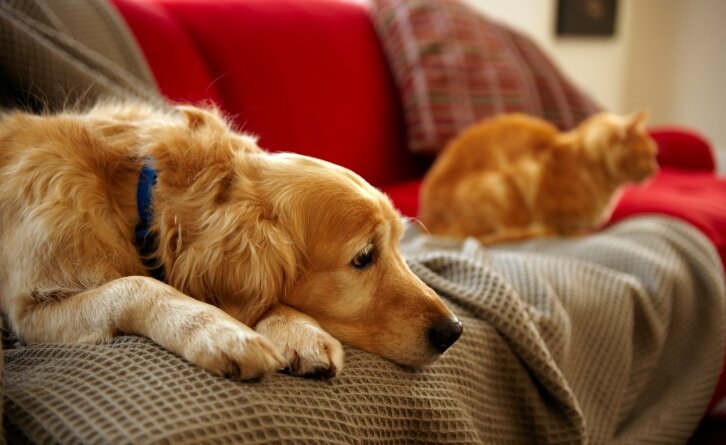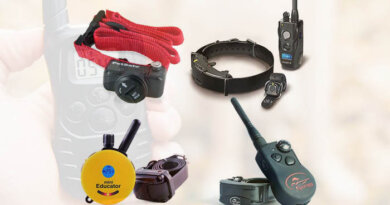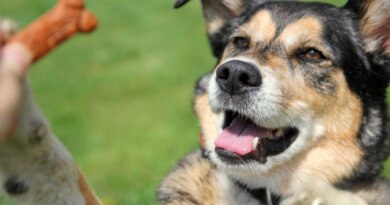How To Give Your Dog & Cat Personal Space During Quarantine
The coronavirus has redefined personal space – not just for us, but for our pets too. Cats and dogs value their own space, so most will be feeling confused as to why their house is a lot busier than normal, with many pet parents working from home and children off school.
The key to creating a harmonious dog-cat relationship in enclosed space lies in keeping things as similar to the pre-lockdown time as possible. Here are some easy tips and suggestions on how to keep the atmosphere peaceful during quarantine.
Respect their personal space
Before even introducing a dog to a cat (or vice-versa), it’s important to understand that these predator animals are both territorial. Creating their personal space will enable them to seclude and feel in charge of their surroundings.
Furthermore, our canine and feline friends don’t enjoy socializing all the time. So during quarantine, your pets will need to get away from the constant hustle and bustle, conversations, and noise that can not only make them nervous but also interrupt their sleep.
Dogs, for instance, need to go through the sleep-wake cycles during the day to maintain quality rest. Constant naps and snoozing are essential for a dog to function properly, be in a good mood, as well as lower stress levels and anxiety.
Create a cozy retreat for your cat
Cats and dogs need their own territory if they are to live harmoniously together. Ultimately a cats’ behavior and friendship with a fellow canine housemate will depend on how in control the cat feels of its home and territory. Signs of a cat feeling too exposed include hiding, stealing food from other pets, aggressive and restless behavior, and similar.
You don’t need to worry if you live in a small apartment, as you can always utilize the vertical space to create a lovely retreat for a cat. Being natural climbers, cats enjoy trees, towers, and scratching posts. Though they can sleep pretty much anywhere, treating them to a gorgeous felt cat cave which is specifically designed to make your kitty feel isolated and safe enough from the rest of the household is a great idea.
Exercise your dog to relieve stress
Despite the quarantine restrictions, there are great ways you can exercise your dog and compensate for the lack of needed walks. Dogs thrive when properly stimulated, both mentally and physically, making them more relaxed around cats or kittens.
You can employ the whole family and create obstacle courses, training sessions, and interactive games for your dog to get busy and engaged. Simple games like the Tug of War or Fetch are easy enough to be played indoors, and also great for sparking interest in your pooch and relieving all the excess energy. When the dog is tired out and satisfied, there’s less chance for friction and fussiness between the pets.
Keep your pets’ belongings separate
It goes without saying that each of your pets should have its own bed, feeding bowls, and needed accessories. Most cat-dog fights happen over food and the feeding station, as both are very protective of their energy source. Cats and dogs rely on their sense of smell, so if you have the means, keep their belongings in separate rooms. Toys, beds, blankets, carriers, grooming supplies, and dishes should all be far apart.
To prevent this nervous behavior, try scheduling your pets’ mealtime, and keep their dishes far apart. You can put your cat’s feeding bowl in an elevated place, out of the dog’s reach. This way, both pets will be occupied with their own meal and not feel threatened by each other.
Finally, treat your pets equally
Cats and dogs can very much sense their owner’s mood, so your demeanor can influence the way they feel about each other. This goes not only for toys, food, and treats but also given time and devotion. Distribute your love equally to both of your pets, and this will mostly shape the atmosphere in your house. In the end, our pets just want to feel accepted and safe, so in times of 24-hour enclosure, use the free time to show your pets the affection and love they deserve.
About the Author:
Emma is a professional writer and blogger, with two furry friends and a lot of pet behavioral and pet health knowledge to share. She has written for numerous big animal magazines and health sites, and is a regular contributor to The Catington Post.




